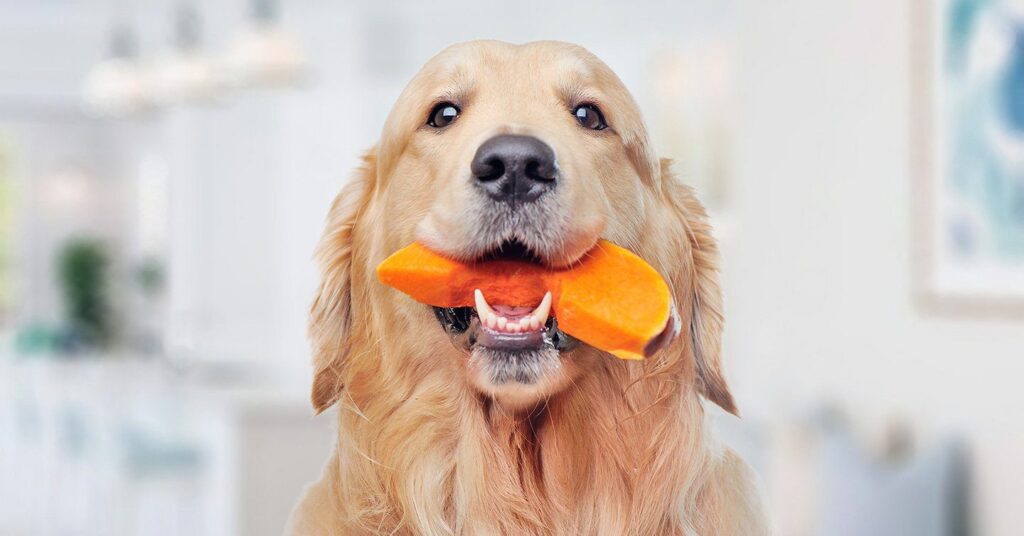We think about bright and beautiful pumpkin in fall (Lattes! Breads! Pies!) but with its superfood status it’s a vegetable to eat-up year round. But is it safe for you to feed to your dog? Yes, pumpkin is safe for dogs to eat and contains lots of beneficial nutrients that can help with everything from a shinier coat to better eyesight. However, too much of even a good thing isn’t good for your pup. Here’s what you need to know about feeding pumpkin to your dog and the best ways to dish it up.
Pumpkins are a healthy treat, loaded with nutrients, fiber and other good things for dogs too.
Before serving any new foods, even healthy ones such as pumpkin to your dog, consult with your veterinarian for appropriate serving size. If you suspect your pet is sick, please call your vet immediately. For health-related questions, always consult your regular veterinarian when possible as they can make the best recommendations for your pet. (If you need help finding a vet near you use this link.)
What Are the Health Benefits of Pumpkin for Dogs?

Pumpkin boasts some serious health benefits for your dog.
Keep in mind, though, much of the success of feeding pumpkin to dogs also depends on the cause of their gastrointestinal issues. If feeding your pooch pumpkin doesn’t seem to be helping your baby get back to his or herself, talk to your veterinarian.
Carved Pumpkins Are a No-Go
Don’t recycle an old Jack O’Lantern as a snack for your dog! Carved pumpkins, especially ones that have been sitting outside for a while, can breed mold and bacteria, which can make your beloved pet pretty sick (and that’s scary).
Can Dogs Eat Pumpkin and do they like it? – Nukka the Samoyed
NOTE: Always check with your veterinarian before giving your dog any new foods, especially “people foods.” What might be okay for one dog might not be good for your dog, depending on their age, health history, health condition, and diet. Dogs on prescription diets should not be fed any food or treats outside the diet.
Pumpkin is an especially healthy treat for dogs to eat. In fact, vets will often recommend adding a little pumpkin into your dog’s diet to help things “flow” properly if your pup has some mild constipation or diarrhea. But there are some specifics to keep in mind when feeding pumpkin to your dog in a healthy, safe way.
Feeding pumpkin to your dog is a great way to help with both mild constipation and mild diarrhea because of its high fiber content. However, if your dog is suffering from severe constipation or diarrhea, you should take them to your veterinarian right away. These could be signs of a more serious underlying health issue.
In addition to promoting good bowel movements, a high-fiber diet will bulk up your dog’s bowels, which helps them express their anal glands naturally. This can help them avoid anal gland issues in the future.